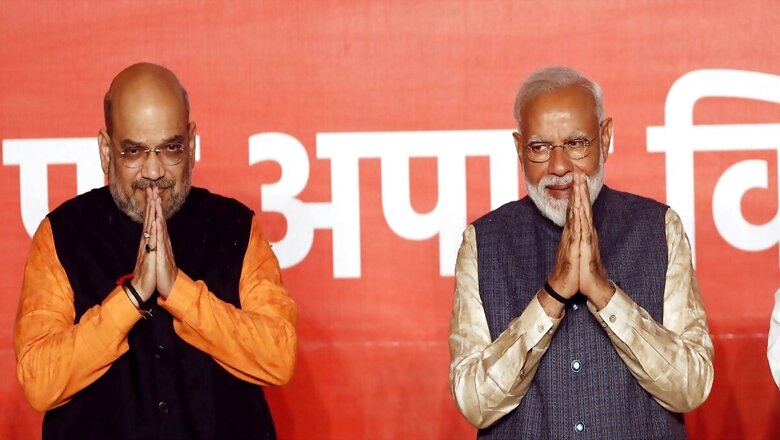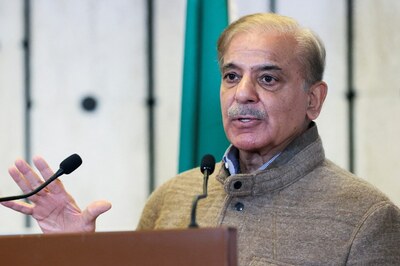
views
The implementation of CAA right ahead of the Lok Sabha elections is particularly significant, as it brings the curtains down on a very eventful second tenure for Prime Minister Modi and sets the stage for an even more eventful third term, which all opinion polls suggest is imminent.
Remember, CAA has been the victim of some of the worst misinformation campaigns over the past five years. While CAA has nothing to do with depriving people of citizenship or disenfranchising Indian citizens, that is exactly what the BJP was accused of trying to do with the law. What is essentially a tool to correct historical injustices was spun as a political tool that would be used alongside NRC to specifically target Indian Muslims. That was why mass protests broke out against CAA in 2019 and 2020.
Indian Muslims were specifically targeted with misinformation campaigns that sought to inflame their sentiments, triggering violent agitations across the country and even leading to riots in North East Delhi.
The fact that the Modi-Shah duo have taken a gamble right before the Lok Sabha elections is worth noting. Not only does it signal a commitment on the part of the Modi government to fulfil the BJP’s core ideological promises, it also sends out a strong statement to those who need it – that Narendra Modi, Amit Shah and the BJP of today cannot be bullied into backtracking from matters of national and civilisational importance. Laws to that effect may be put on hold, even taken back in order to give the people more time to process the change and get the government’s own messaging right, however, they should never be taken to be in permanent cold storage. Eventually, what is right and needs to be done, will be done.
The implementation of the CAA also required political courage. With several Opposition-ruled states taking a hostile stance against the law, ordinary political wisdom would dictate that the BJP not touch an issue as sensitive as CAA weeks before the country heads to polls to choose its next prime minister and national government. However, both PM Modi and Amit Shah have displayed an appetite for taking risky and decisive decisions over the past five years, which other leaders would have shied at the mere mention of.
The abrogation of Article 370 specifically comes to mind. For years, there was a genuine fear in India’s political class that tinkering with Kashmir’s special status would trigger unparalleled bloodshed in the Valley. What was once increasingly resembling the Palestinian intifada-like culture of stone pelting has today vanished from Kashmir. Tourism is booming, investments are rushing in and developmental work is being undertaken at a scale not seen before.
While Article 370 provided constitutional cover to terrorism, corruption and rampant discrimination in Jammu and Kashmir, the era that dawned after the abrogation has integrated the Valley solidly and permanently with the Indian union. It is important to point out here that the removal of Article 370 has by far been the BJP’s biggest ideological commitment, which is perhaps why it was the first big decision to be taken right at the beginning of Modi 2.0.
Meanwhile, Hindus and Ram bhakts around the world had nearly lost all hope of witnessing the making of a grand Ram Mandir in Ayodhya during their lifetimes. However, based on the Supreme Court’s very sound verdict in favour of the Hindu side, the path was thrown open for the Modi government to constitute the Ram Janmabhoomi trust and facilitate the expeditious construction of a temple at the site.
The Ram Mandir’s inauguration became a national celebration as Prime Minister Modi called on all people to light diyas and celebrate Deepawali in their homes. Again, what was once considered an untouchable issue politically in India seamlessly turned into a moment of Bharat’s civilisational awakening – all because the government itself became an active participant in the event. The message was clear: the inauguration of Ram Mandir in Ayodhya was too big and culturally significant a moment for Bharat to get caught up in ordinary political correctness.
Circling back to the CAA, one cannot ignore the fact that the implementation of the law after four years has come as a boon for the sea of Hindu, Sikh, Buddhist, Jain, Parsi and Christian refugees who after having fled Islamic countries like Pakistan, Afghanistan and Bangladesh were denied their rightful due even in India. This was a historical injustice meted out to such communities, and CAA will finally help set this gigantic wrong right.
Now that CAA rules have been notified, these Indic communities can officially call Bharat their home – as it is and as it has always been. One must understand that CAA ensures that those who have no other place in the world to call home can now call India their country. It is that aspect which lends CAA its civilisational significance, and also why the BJP has championed this cause for years and finally brought its ideological promise to fruition. Now, India is truly the “Motherland” for all those who fled their countries owing to religious persecution.
Over the past five years, the BJP has demonstrated that it is not a party which makes big promises only for all of them to be left unfulfilled. Since 2019, the Modi government, making use of its strong majority in the Lok Sabha, has fulfilled some of the BJP’s core ideological promises. My limited guess is that Narendra Modi’s third term will be even more significant in civilisational and ideological terms, which is why the BJP and NDA are seeking a two-thirds majority in the Lok Sabha.
Remember, work on a Uniform Civil Code is already being taken up by BJP-ruled states. It would therefore not be an overstatement to suggest that over the next five years, one can expect Bharat’s civilisational ethos to make an even stronger comeback in its society and polity.
Views expressed in the above piece are personal and solely those of the author. They do not necessarily reflect News18’s views.


















Comments
0 comment